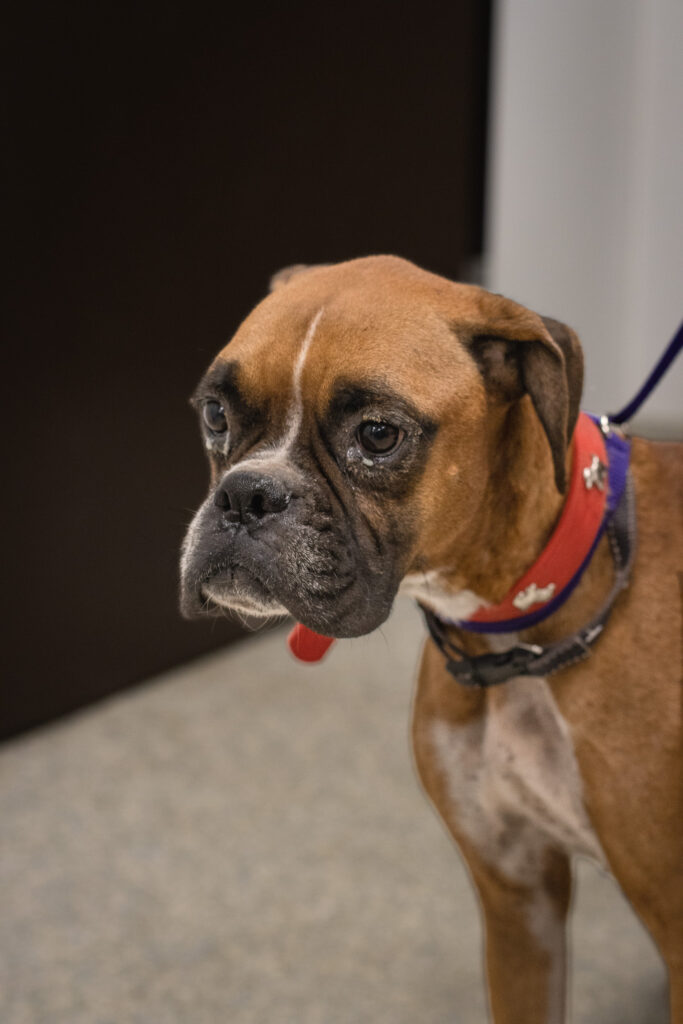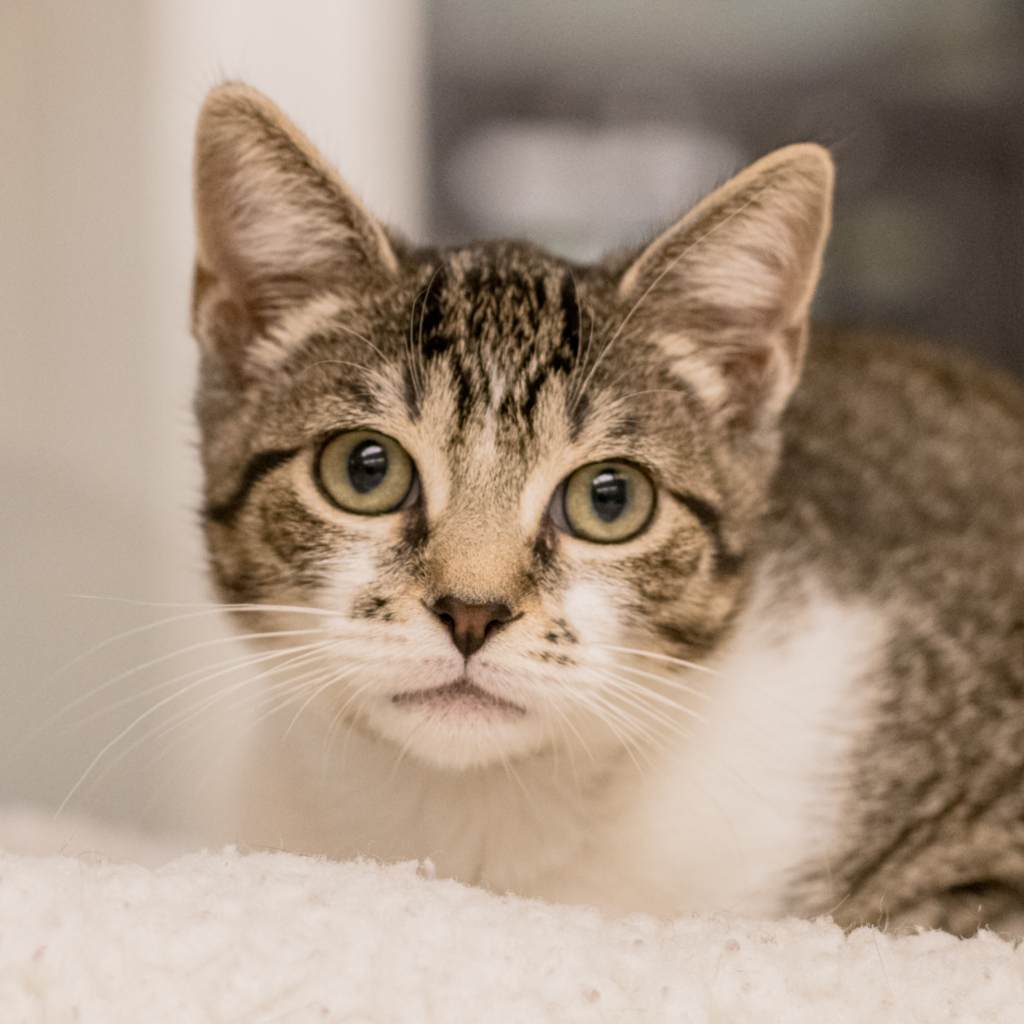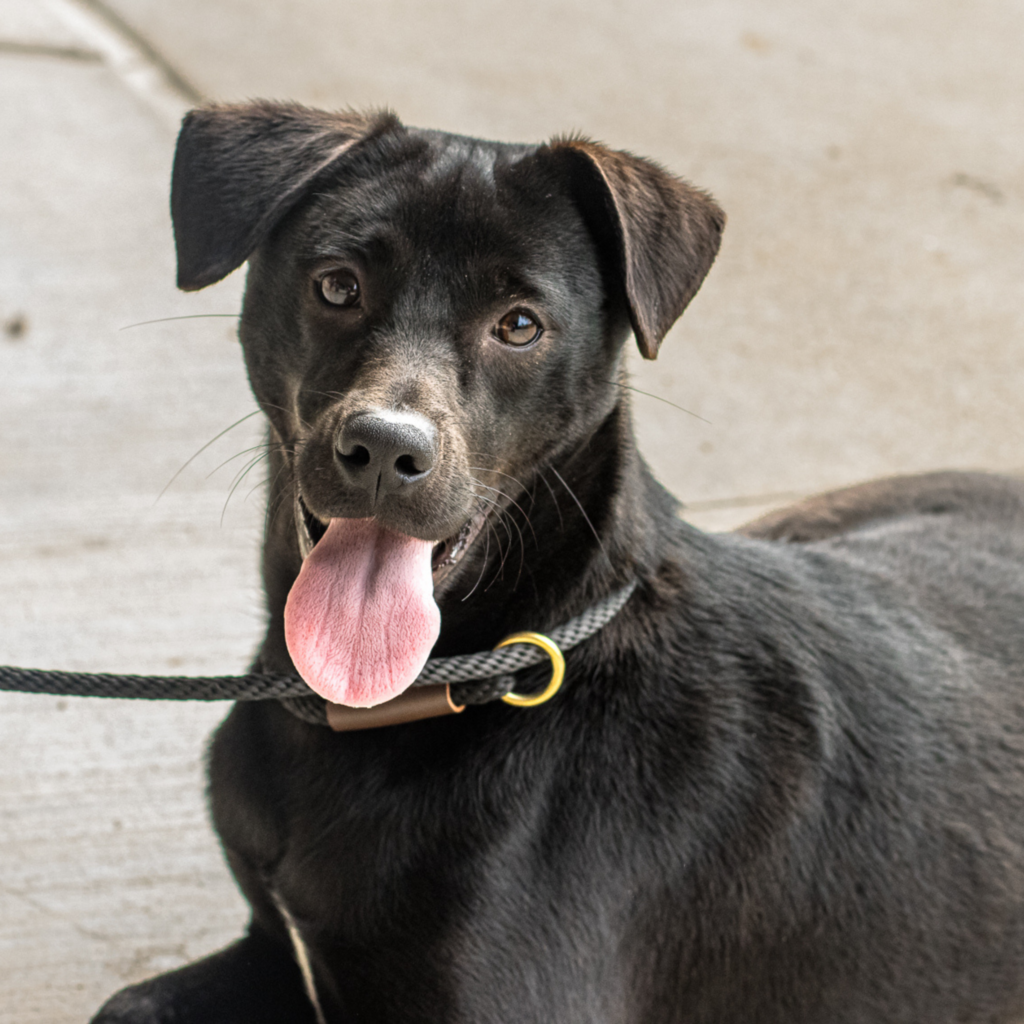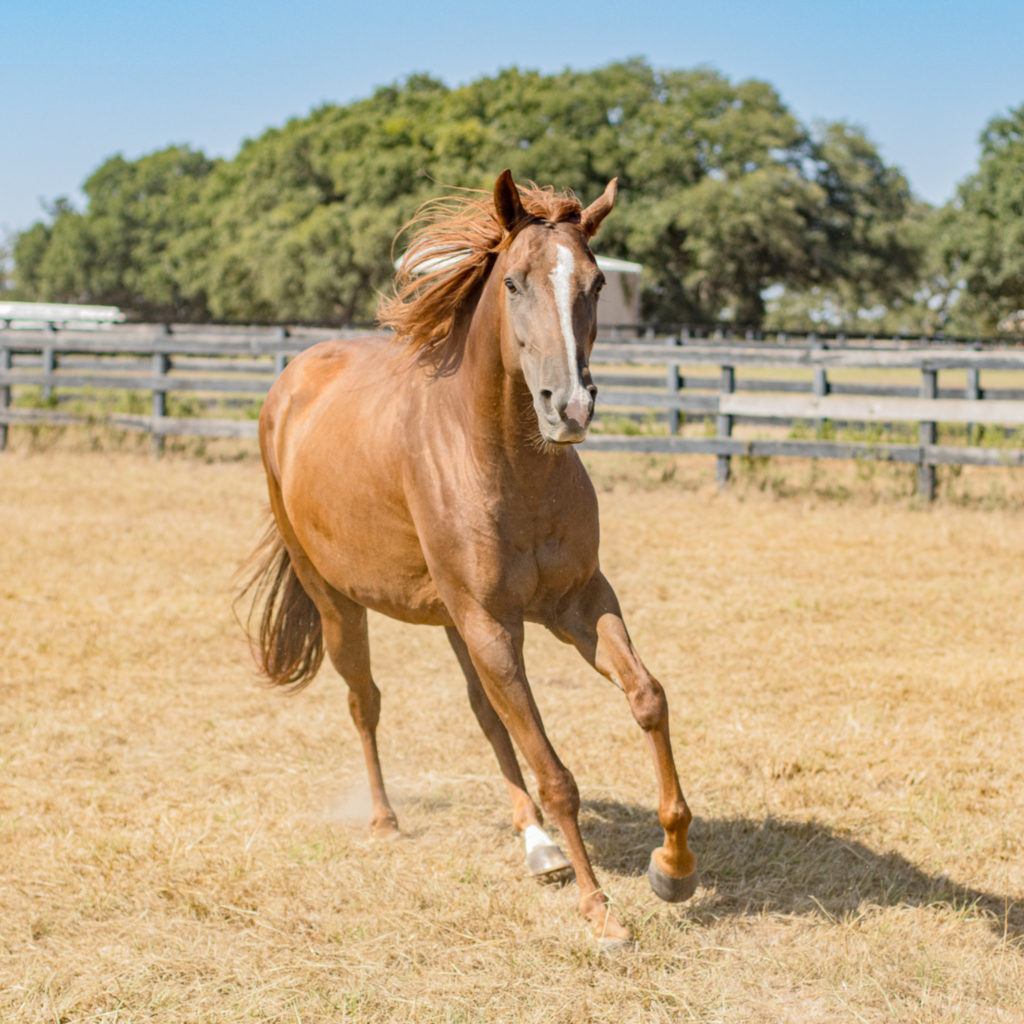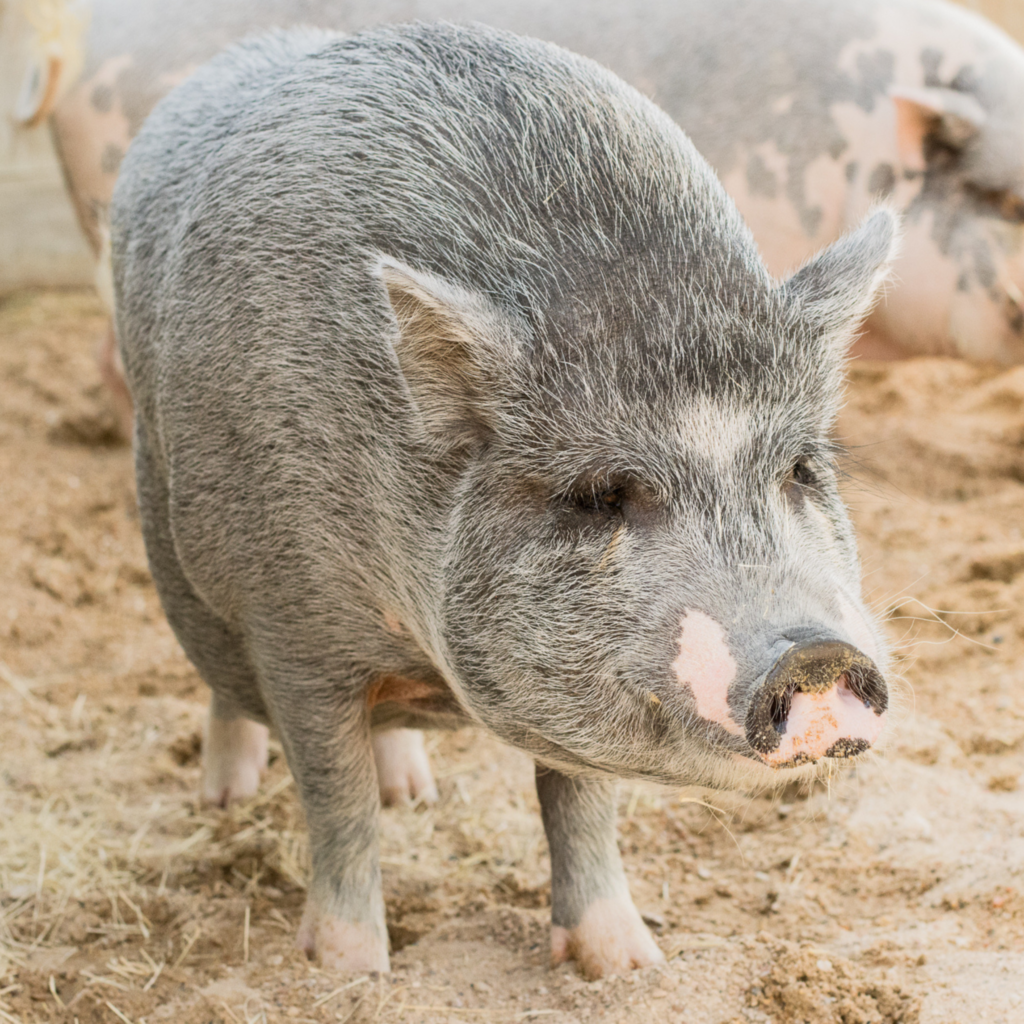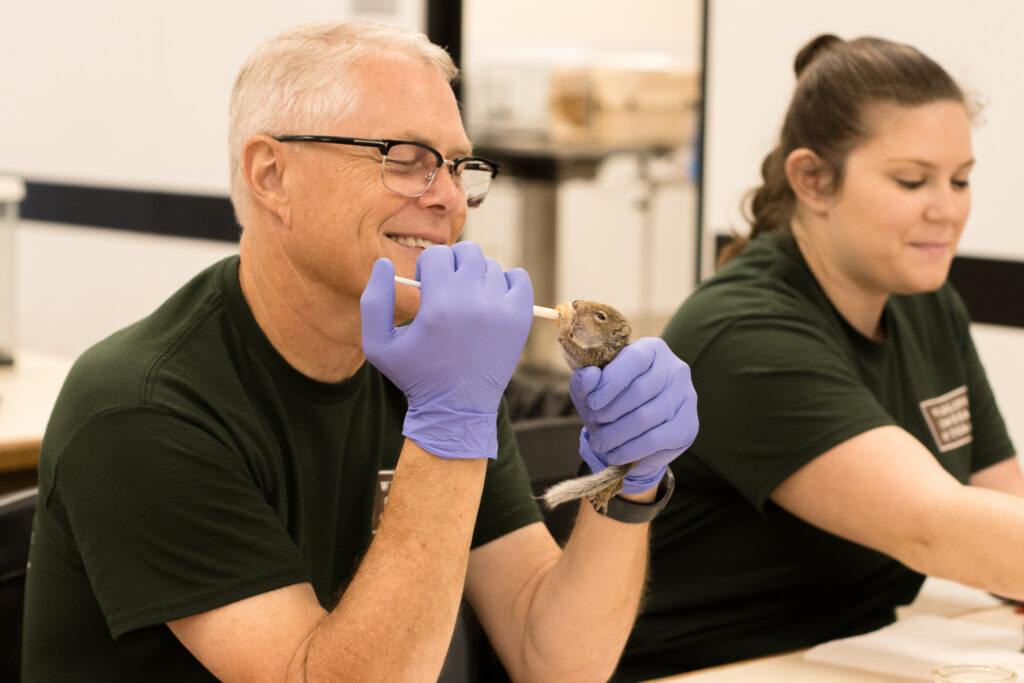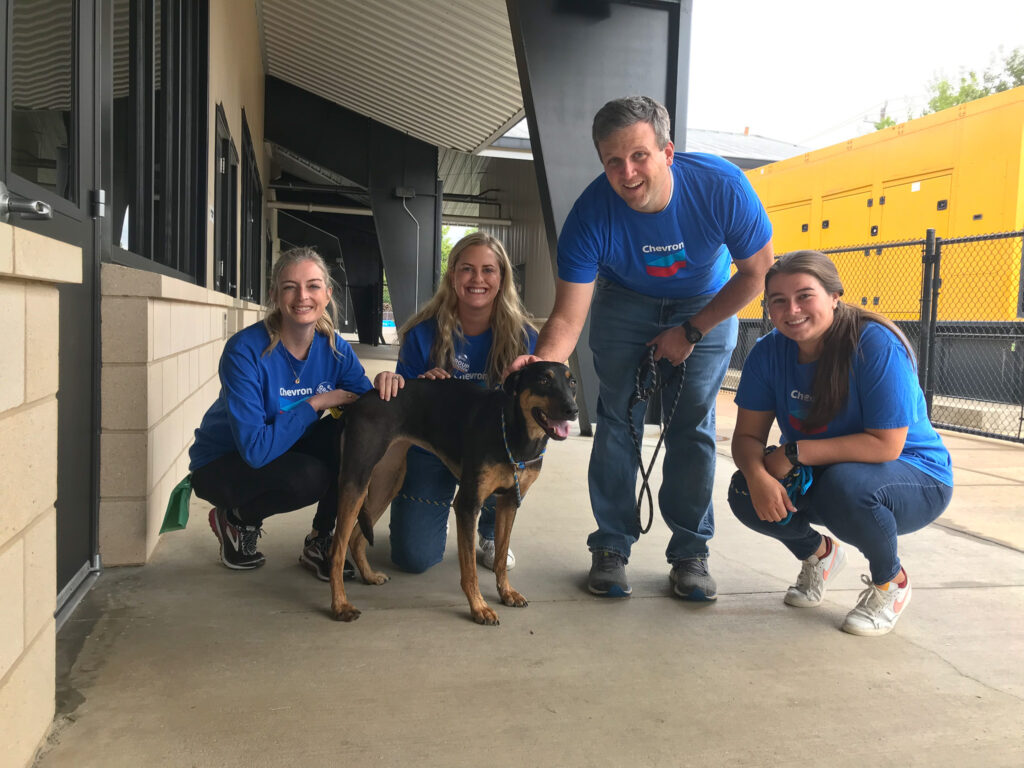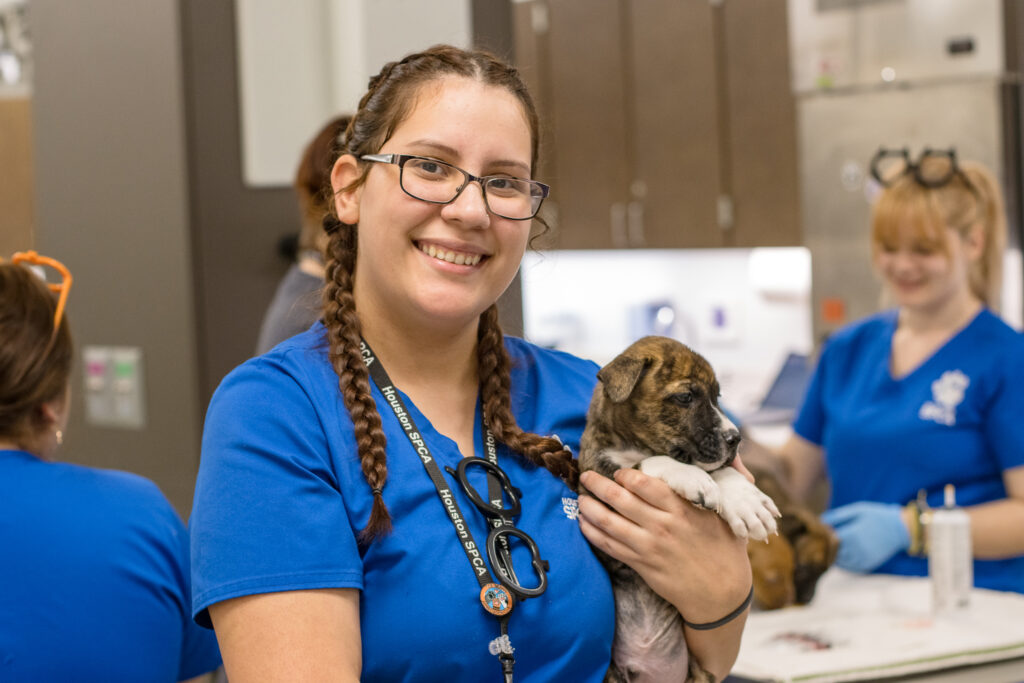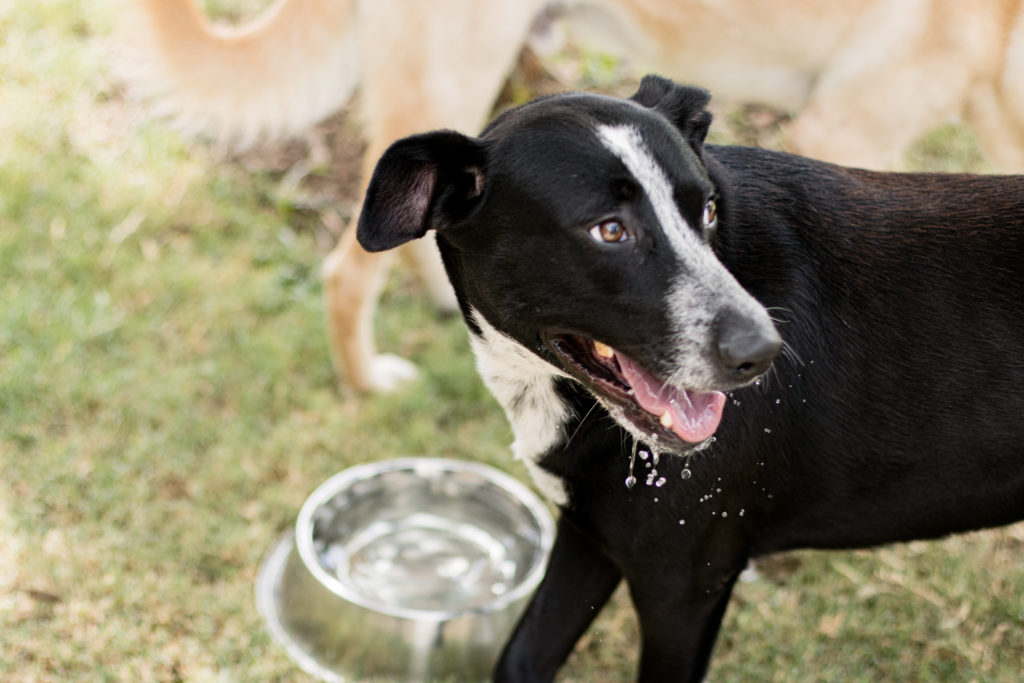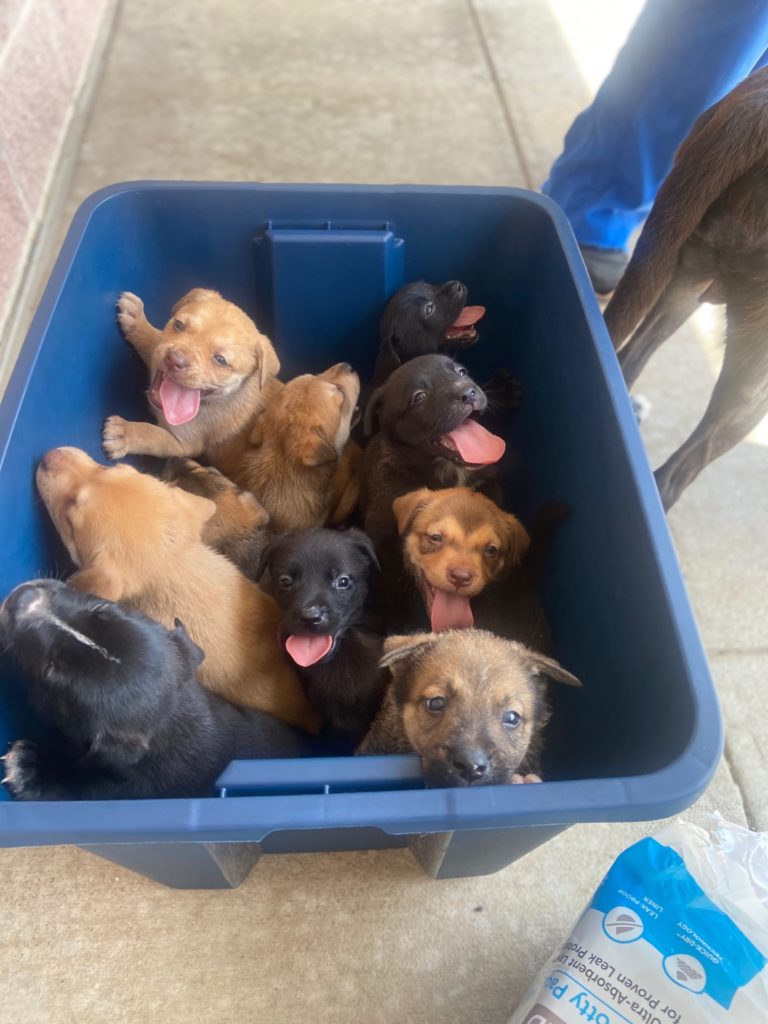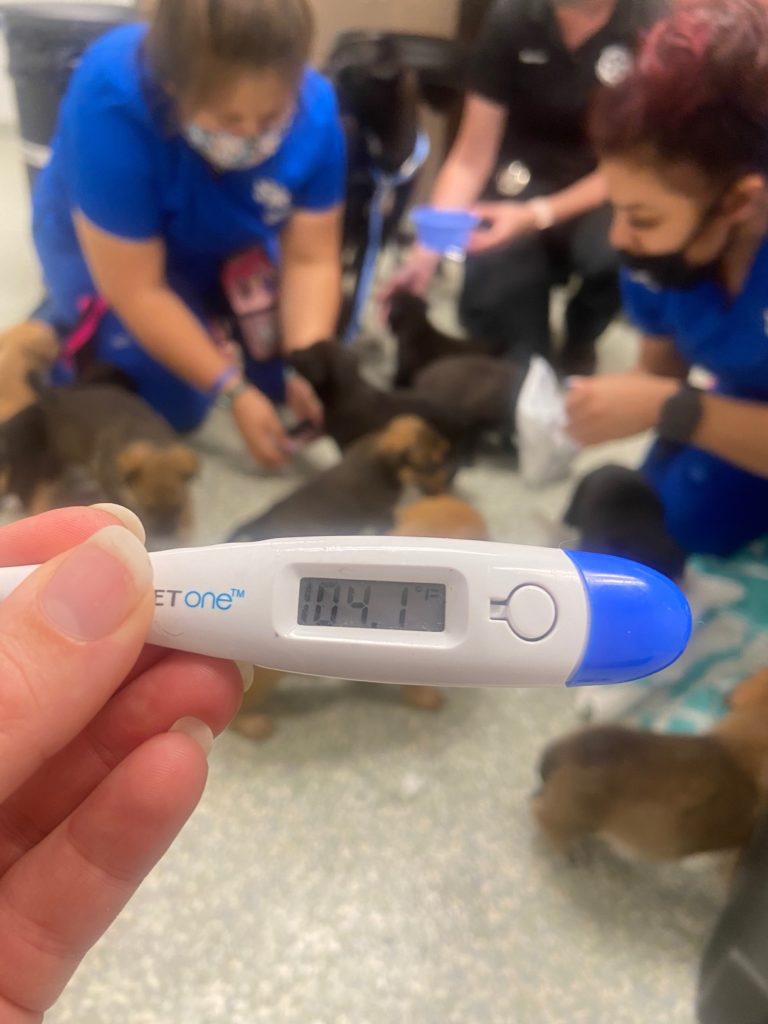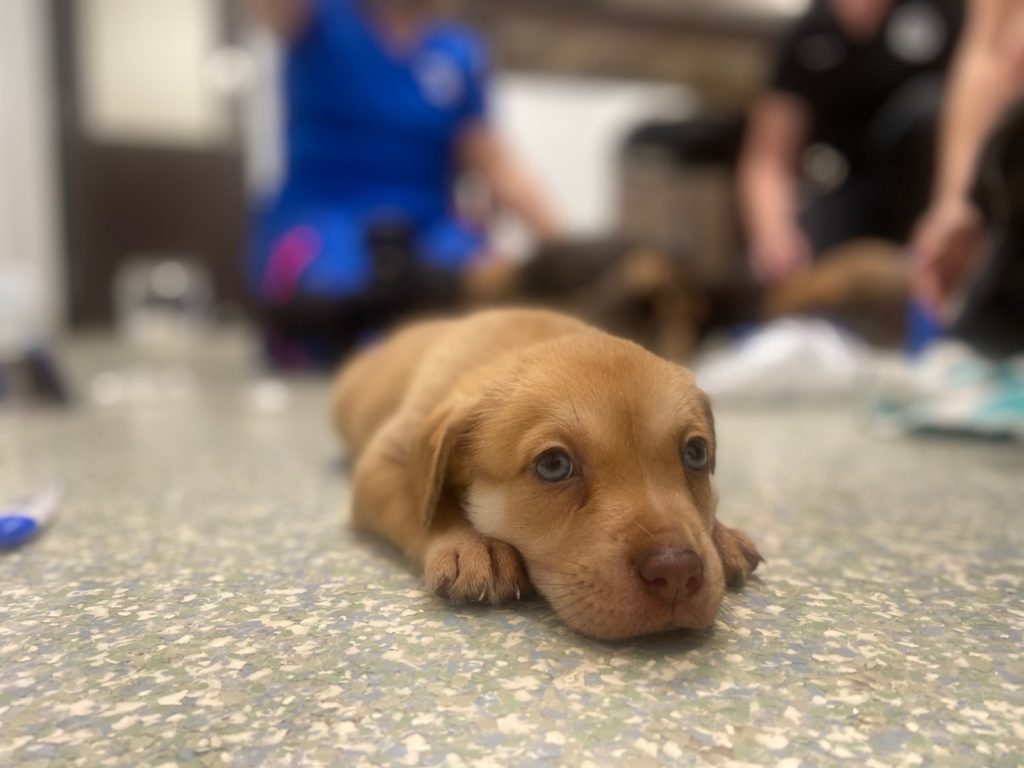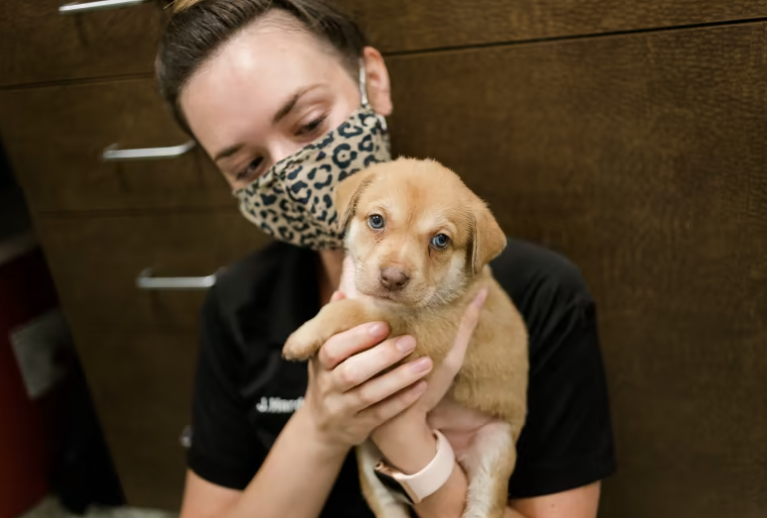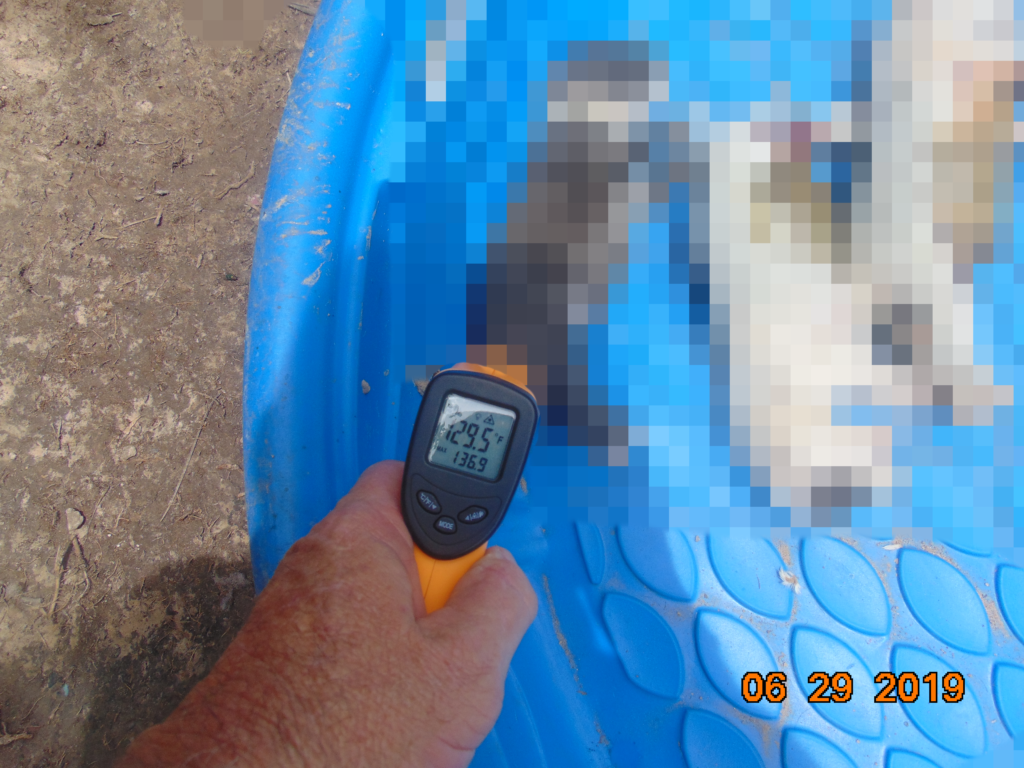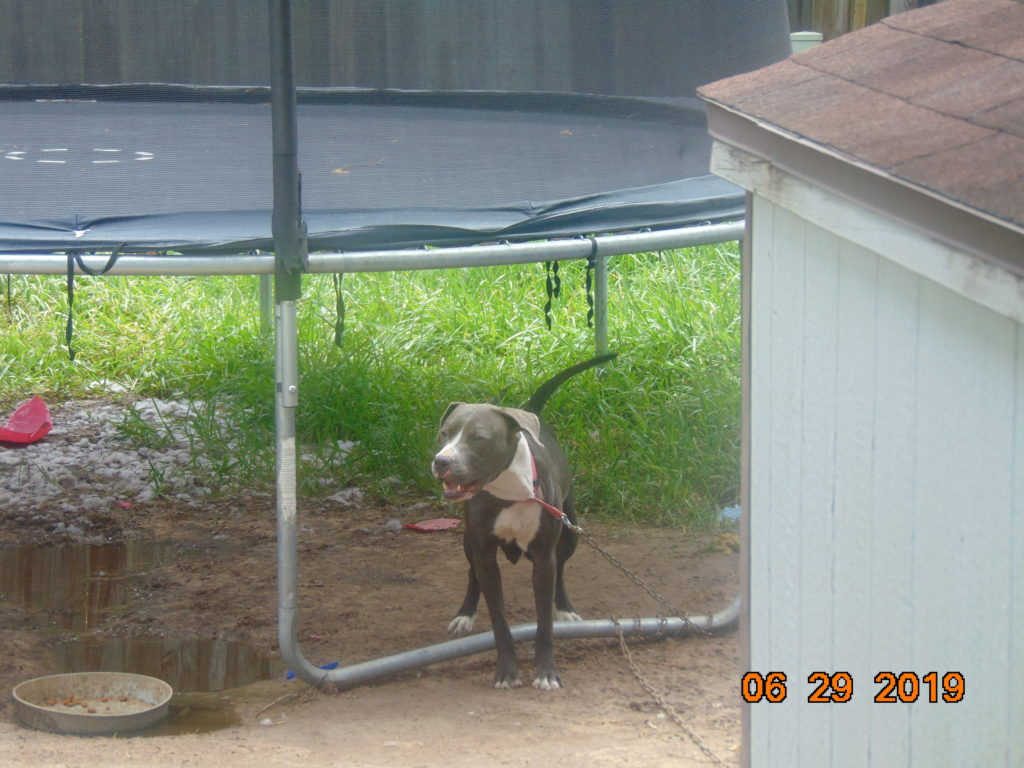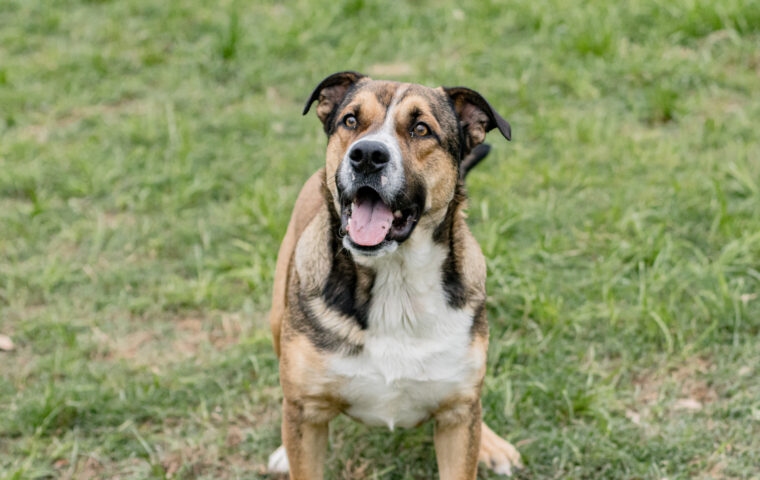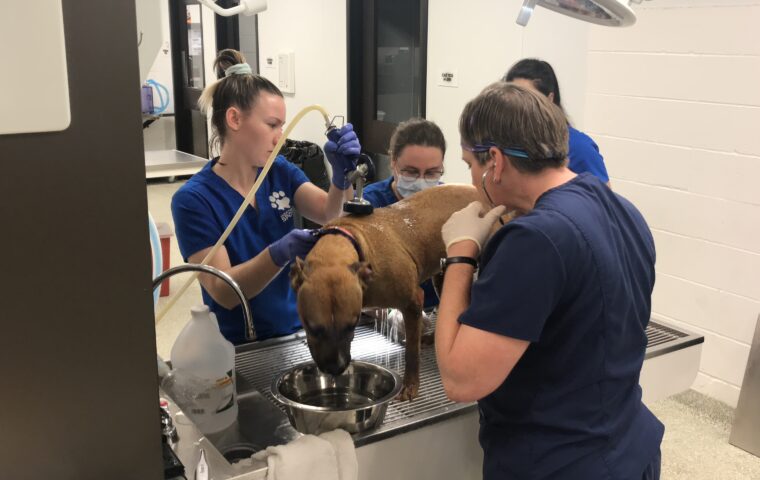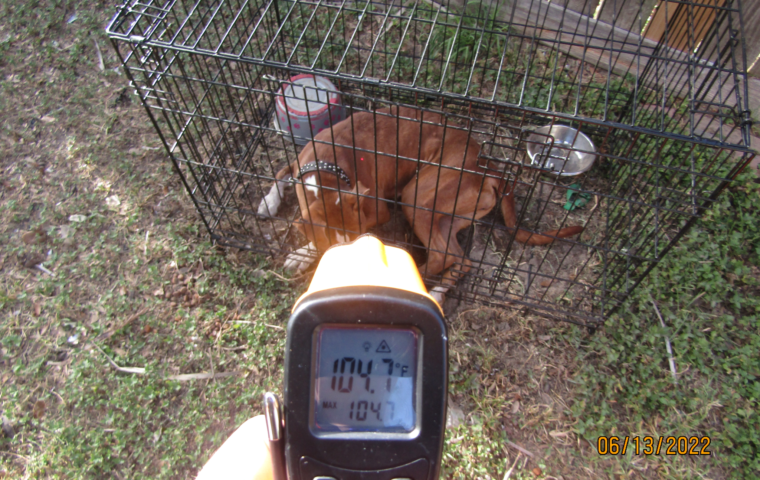(May 6, 2022)
Summertime in Texas is characterized by high temperatures and sweltering humidity. In 2021 between July and September alone, Houston SPCA investigators received 361 cases of cruel confinement and inadequate shelter. With thicker fur coats and the urge to run and play, our pets are particularly susceptible to heatstroke, and it doesn’t take as much as you think for your furry friend’s internal temperature to get dangerously high.
What is Heatstroke?
First of all, what is heatstroke and why is it dangerous for our pets?
Its most simple definition is elevated body temperature. Temperatures over 103 degrees in dogs are cause for concern, with heatstroke occurring at temperatures over 106 degrees, according to Houston SPCA partner VCA Animal Hospitals. Critical levels occur between 107 and 109 degrees, with the danger of death present in this range.
Dr. Westbrook explains heatstroke, how to prevent it, and what to do if your pet gets too hot in the FOX 26 and Houston SPCA Pet Pawcast below.
STAY UPDATED: Follow us on Twitter
What signs of heatstroke should I look for in my pet?
Heat distress can happen much faster than you might think. Even in mild temperatures, just a short period of heavy exercise or playtime can become dangerous.
Since dogs can’t sweat as humans can, their primary way of staying cool is panting. When the weather is warm or if they’re very active, panting is very normal. However, if they are panting very heavily and seem uncomfortable and restless, get them indoors and plenty of water quickly. Other signs of dangerous heat distress include pale or dry/sticky gums and lethargy.
Cats, however, do not normally pant, and this is a concerning sign of heat distress on its own. Rapid pulse, red tongue, vomiting, and staggering are other signs of overheating in felines. They need to be brought indoors, treated with cool water, and allowed to drink as much water as they need.
Heatstroke can be prevented by:
- Avoiding outdoor activity during the hottest parts of the day, especially in summer
- Taking frequent breaks from outdoor activity or playtime
- Offering plenty of water
- Providing adequate shelter, food, and water if your dog lives outdoors
- NEVER leaving your pet in the car
Extra precautions should be taken with brachycephalic breeds like boxers and bulldogs, which are at greater risk of heatstroke than other breeds.
My pet is overheating from high temperatures, what do I do?
If your pet’s temperature is elevated and you notice symptoms of heatstroke, move them indoors and call your veterinarian for further instructions immediately. Any level of concern should prompt you to call your veterinarian, and they will let you know if your pet should be brought in for IV fluids and other treatments.
Offer your pet plenty of water to drink. Pour cool water over your dog’s stomach, head, and armpits. These areas have less fur coverage and help cool your pet down quicker. Don’t use anything too cold, as controlled temperature reduction is key. Keep air flowing over your pet and replace any wet rags as they absorb heat from your pet’s body.
Be sure to continuously check your pet’s temperature and stop cooling efforts once the internal body temperature reaches 103 degrees once again.
When high temperatures become fatal
Staff at Houston SPCA have unfortunately seen many an animal succumb to hyperthermia. Pets left in hot cars; dogs tethered without access to food, shelter, and water; animals abandoned in the heat; we’ve seen it all.
In May 2021, 11 puppies and their mom were dumped at our campus at an entrance with low traffic. Thankfully, a staff member walked by and found them before it was too late, but they had already begun to go into heat distress in the short amount of time they’d been waiting outside. All 12 animals were saved in time.
Houston SPCA cruelty investigators pursue criminal charges when possible for cases of heat distress, especially when it’s too late.
The owner of these dogs and their deceased puppies was arrested and convicted of a 3rd-degree felony. Houston SPCA and the Office of Constable Alan Rosen, Harris County Constable Precinct 1 investigated this case in 2019 regarding puppies that went into heatstroke after being left in a plastic pool in direct sunlight. Their mom was tethered with a chain away from her puppies. The court process is a long one, it can take years to get to this outcome. The Precinct One Animal Cruelty Division at Houston SPCA has filed over 300 charges in the past 3 years.
The Safe Outdoor Dogs Act went into effect this year and protects outdoor pets from cruelty and neglect, especially in extreme temperatures. Click here to learn more about the details and requirements for owners of outdoor animals.
What should I do if I see a dog alone in a hot car?

WHEN POSSIBLE, call Houston SPCA at 713-869-7722 so evidence can be collected.
If the animal is lethargic, panting heavily, and in obvious heat distress, call 911 first.
Remain by the vehicle and take videos and photos of the animal and license plate if safe to do so.
Check out Tracks & Tails for more tips on pet care and safety!



